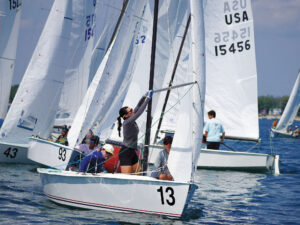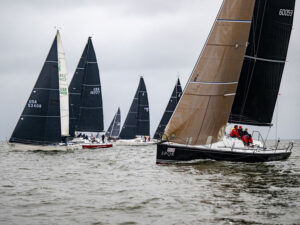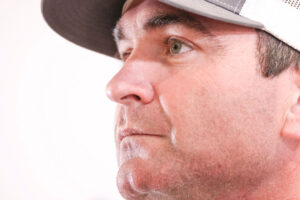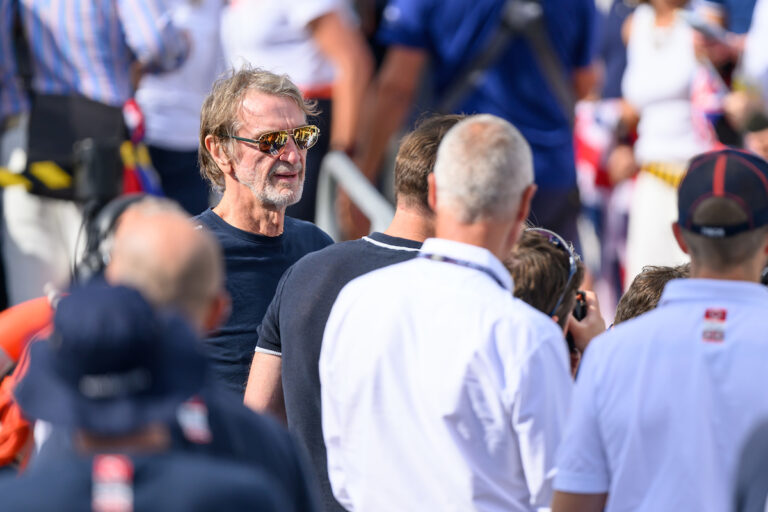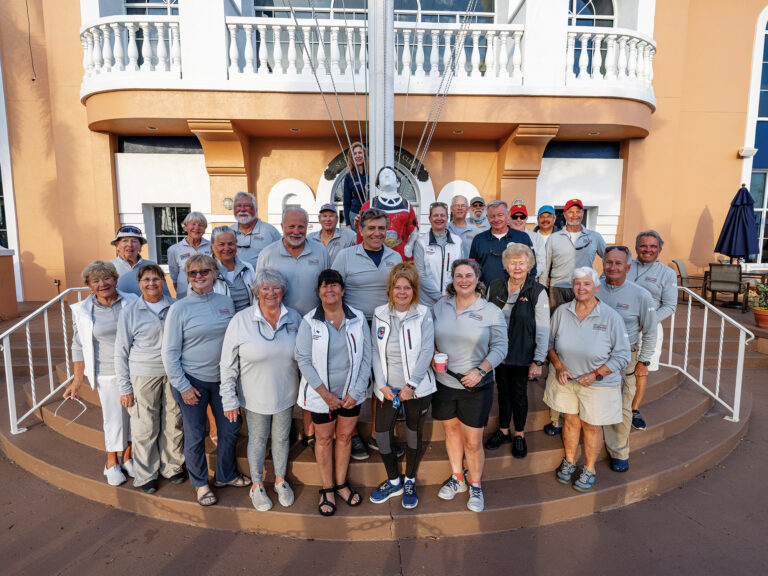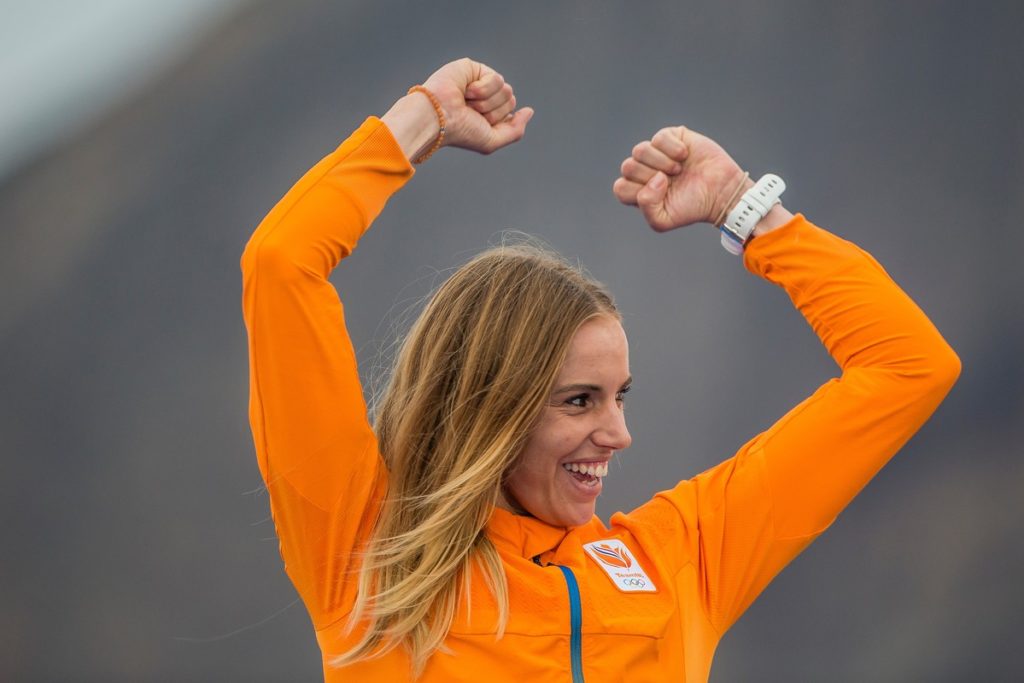
Marit Bouwmeester
The Laser Radial class has seen newcomers progress and Olympic medallists continue on their upward trend throughout the Rio 2016 quadrennial to form a formidable class line up. But it was the Netherlands’ Marit Bouwmeester who rose above the fleet and showed she was the most determined and focussed to claim the coveted Olympic gold medal. Bouwmeester began the nomination period with a silver medal in Abu Dhabi at the Sailing World Cup Final before making the short trip to Oman where she again picked up a silver at the 2015 Laser Radial World Championships.
At the turn of the year, the Dutch sailor made the trip to Rio de Janeiro in the lead up to the Rio 2016 Olympic Games and competed at the Brazilian Laser Radial Championships and the Brazilian Nationals. Bouwmeester won both in quick succession to gain some confidence ahead of the summer showpiece in a venue that was touted to offer a range of sailing conditions.
A silver at Sailing World Cup Miami and gold at the European Championships followed before Bouwmeester fell outside of the medals in the 2016 Worlds in Mexico by finishing fourth.
The Dutch sailor is renowned for her fierce competitiveness and drive and obviously a fourth place finish was not acceptable. She was determined to make amends and would take the disappointment to add to the fire that burns inside her to win.
Bouwmeester returned home to win the Delta Lloyd Regatta and continued her strong racing to take the Sailing World Cup Weymouth and Portland title, the final international regatta before her assault on the Olympic title. An assault she had waited four years for after claiming silver at London 2012. She wanted, needed to go one better.
With two wins in Rio de Janiero already under her belt, Bouwmeester took her Rio form to sail a steady and consistent regatta which gave her an advantage heading in to the all important Medal Race. A race in which the memories of her last Olympic outing were still fresh, she would not make any mistakes this time around.
In a to and fro finale, Bouwmeester put to rest any Olympic demons she had. As she crossed the finish line, Bouwmeester knew she had the Olympic gold medal that she had coveted so much.
With a knack for punishing opponents when the time comes, Bouwmeester kept her cool and sailed an accomplished regatta when it mattered the most. Taking the experience of her earlier Rio de Janiero wins and the London 2012 lessons, the Dutch Radial sailor bettered her previous Olympic result by one position. But what a position, the gold was finally hers.
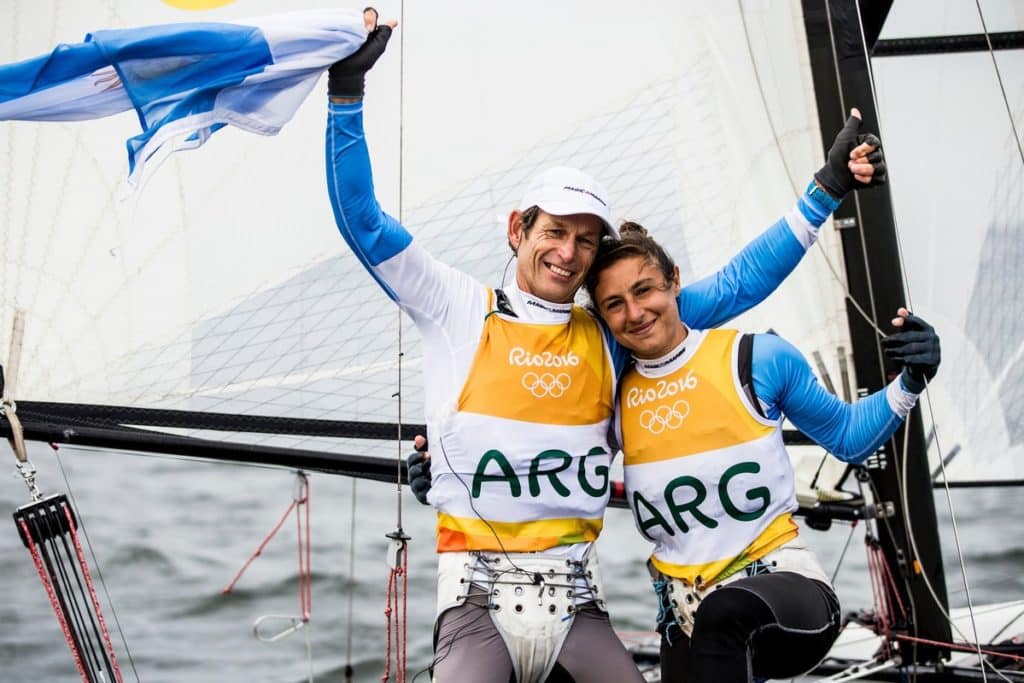
Cecilia Carranza Saroli
When you’re sailing in a team you have to perform different roles inside and outside of the boat. For Argentina’s Cecilia Carranza Saroli she became the ultimate team mate in an Olympic campaign that could have been so different. But you have to go through the bad to savour the good. Having sailed in the Laser Radial at the Beijing 2008 and London 2012 Olympic Games, Saroli decided to make the switch and compete with a partner for the Rio 2016 Olympiad. The newly introduced mixed Multihull class, the Nacra 17, presented a new opportunity for Saroli, providing her with a new dimension of Olympic campaigning.
Making the change from a one-person dinghy to two-person multihull was always going to be a challenge but Saroli would face more emotions than most. Support, heartache, team work, and in the end, triumph. She would taste it all.
Partner Santiago Lange’s story has been widely spread. Cancer in 2015, a return to health and then Olympic gold. But while Lange’s is undoubtedly an inspiring story, it is important to remember that the Nacra 17 is sailed by two people with the same dream. When something happens to put that dream on hold, it happens to them both.
As Lange was undergoing treatment and subsequently getting back to fitness, Saroli had to put her Olympic dream on hold. Instead of sharpening her boat skills with her partner, she had to do the most important job of all. Support. Not in the boat. But out of it in everyday life.
Some things are more important in life than even sailing. And health is one of those. Saroli waited and supported patiently in the ultimate test of a partnership. She could have easily given up on her Olympic dream or moved on to another partner. But she did neither.
When it came to Lange’s return the pair worked their way through the rigours of the physical class, testing, training and working on their rhythm before moving on to the Rio 2016 Olympic Games.
It was in South America where the dream began and finished. Argentina to Brazil. Taking the strength and determination their time out of the boat had given them, they began down a dream path to Olympic gold.
Experience was the buzz word for the two Argentinean sailors. Marrying her own Olympic experience with Lange’s in a class making its Olympic debut, they sailed to the top of the leaderboard heading in to the Medal Race. They then took the experience of the previous year, determination and strength, to clinch gold from the face of defeat when they had two penalty turns against them.
Saroli and Lange had done it. They had won gold in one of the stories of the Games.
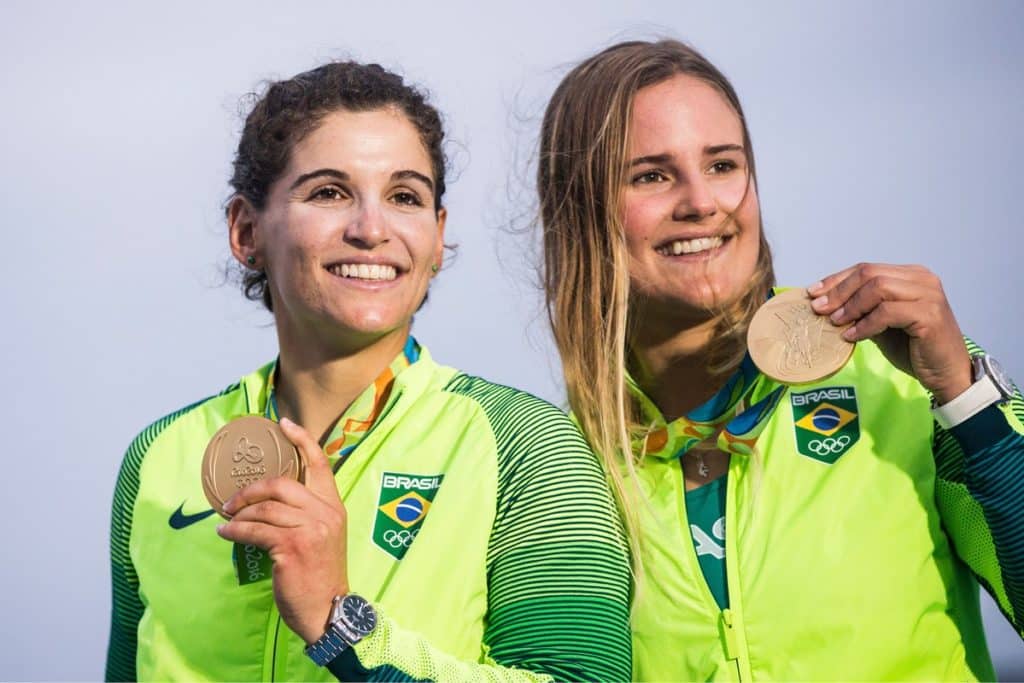
Martine Grael & Kahena Kunze
Picture the scene. It’s the final opportunity to win a medal at the Olympic Sailing Competition in Rio de Janeiro, Brazil. Flamengo Beach is buzzing with expectant spectators with millions more watching on TV across Brazil. You have the weight of an expectant nation on your shoulders as you head into a four way shoot out for gold. You have a slow start. You fight back. You never give up. You take the lead. Your rivals inch closer. You look ahead and you’ve won gold by two mere seconds!
Seems like a fairy tale ending doesn’t it? But this all played out for the darlings of Brazilian sailing, 49erFX sailors Martine Grael and Kahena Kunze.
Since the 49erFX was introduced in to the Olympic programme, there have been gains made at different points within the quadrennial and with four separate world champions, it was always going to be a wide open field at Rio 2016.
The nomination period begun for the Brazilian girls in neighbouring Argentina where they took two silver medals in quick succession at the South American Championships and World Championships.
Mixed results followed in the Sailing World Cup series and 2016 World Championships in which they only finished on the podium once, at Sailing World Cup Hyeres.
With two wins from two Olympic Test Events, Grael and Kunze returned home to sail in the South American Championships just ahead of the summer showpiece. They placed just outside the medals in fourth, the first time they had not won on the waters of Guanabara Bay during the quad. But this would only spur them on.
Just like every 49erFX regatta that had gone before, there was no clear favourite. It wasn’t outside the realms of possibility that an outsider could come out of nowhere to win in the wide open class.
As racing started there were mixed results for all teams. Podium positions changed constantly. The wide open class was, well, wide open.
It would all come down to the Medal Race, the very final race of the Olympic Sailing Competition. It was Brazil’s last hope of winning a sailing medal and Grael and Kunze were in contention. They were one of four teams that could win gold, but they were also one of four teams who could leave with nothing.
Almost predictably the final race was a game of cat and mouse. New Zealand’s Alex Maloney and Molly Meech seemed to have taken the initiative and were leading the way, but it wasn’t over for the home team. They chose the opposite side of the race course to their Kiwi rivals. It had paid off. They were leading on the last downwind leg, but the New Zealander’s were chasing hard.
Grael and Kunze held off the challenge and claimed gold by just two seconds. When they hit the shores of Flamengo Beach they were greeted by an adoring crowd who lifted them out of the water to celebrate a famous victory.
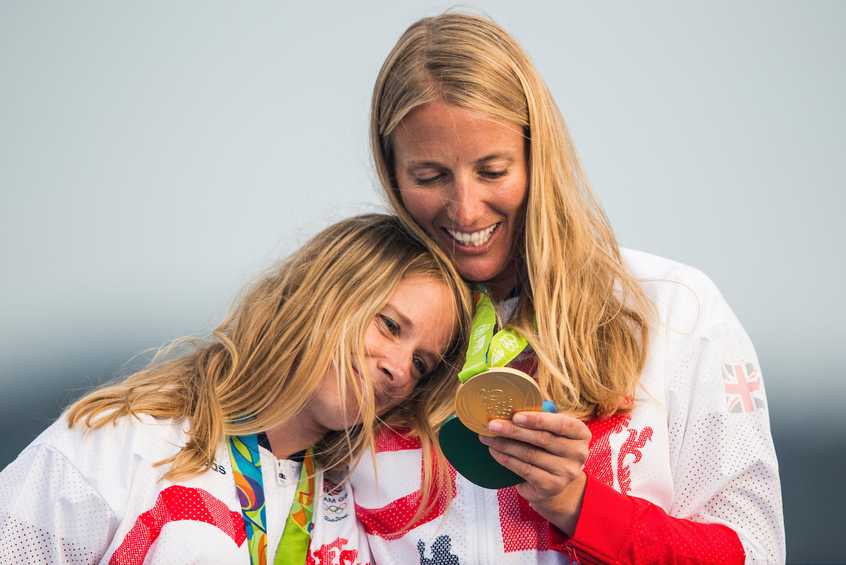
Hannah Mills & Saskia Clark
The Olympic Games is the pinnacle event in sailing. Held every four years it takes focus and drive to campaign and makes participation at the biggest event in sport all the more special. However, for those who miss out on their targets, it is a long four year wait to set the record straight.
Great Britain’s 470 sailors, Hannah Mills and Saskia Clark waited and waited, methodically planning their assault on the gold medal they had missed out on in their home waters of London 2012. In Rio 2016, the four-year plan was completed when the long-time friends climbed on to the top step of the Olympic podium to collect their gold medal.
The pair begun the nomination period with a silver medal in the 2015 World Championships in Israel before claiming the Sailing World Cup title Final title in Abu Dhabi. There was disappointment next as the duo placed 15th in the 2016 World Championships in Argentina, the worst position they had finished in a regatta for the entire quad.
With all results in sport, it’s not always about a single result, but what you do next and how you bounce back from the disappointment. Mills and Clark came out fighting. They won the Sailing World Cup Hyeres title before heading to their home waters of Weymouth and Portland to claim another Sailing World Cup gold. Almost poetically the final regatta before the Rio 2016 Olympic Games was at the venue of their London 2012 silver medal, the result they were aiming to better.
The time had come, Mills and Clark were ready to go. And while they began strongly posting high finishes in all races their rivals were almost falling apart around them.
With top eight finishes in each race and with team after team faltering, the British pair knew that barring a complete disaster in the Medal Race the gold that had been their primary focus for four years would be theirs.
There was no such melt down or collapse. An Olympic gold medal was finally secure. They had stayed out of trouble in the final race to cross the finish line as champions.
With so much support throughout the campaign from friends and family, and that support being in Rio to see all the endeavours come to fruition, the girls sailed straight to Flamengo Beach to celebrate among the thousands of fans that lined the shore.
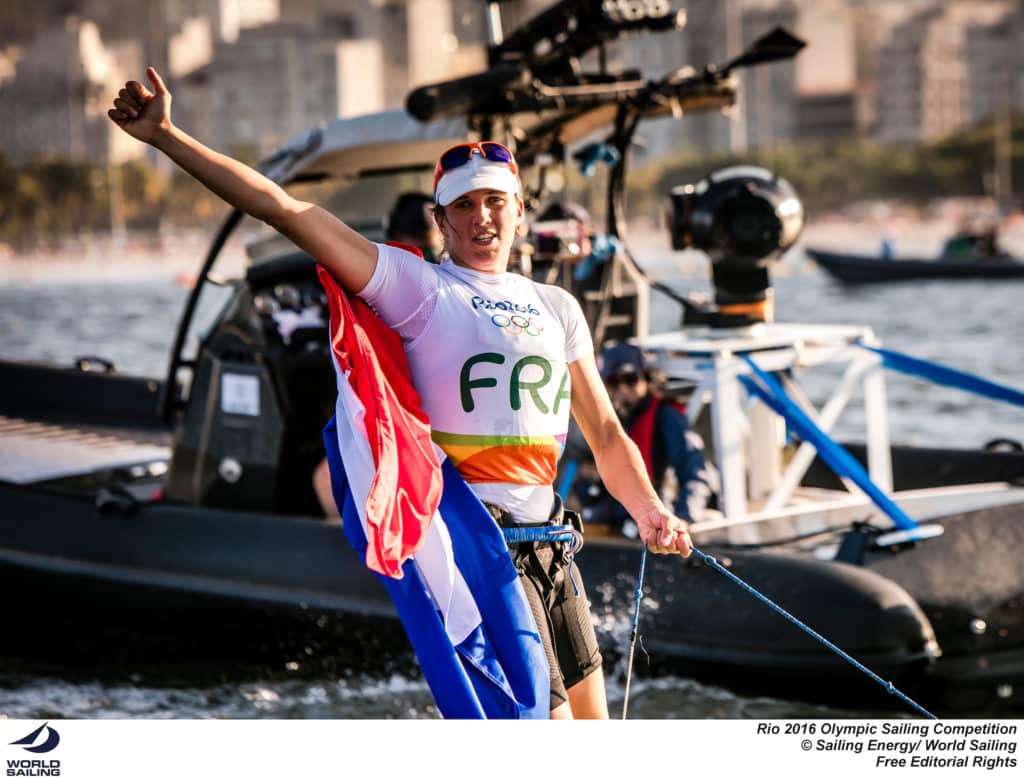
The Rio 2016 Olympic Sailing Competition
Charline Picon
Sailors, just like any sports competitors, have faith in their own ability and will aim for a win. Some will even make a prediction of their result. For France’s Charline Picon her prediction came from a French saying, ‘Jamais deux san trois’. ‘Never two without three’. For her, the third would be an Olympic gold medal.
Picon’s saying came off the back of two wins at the Rio 2016 Test Events held in the waters of the Olympic Games, and although it would come true, it wouldn’t come as easy as just saying the words for the French windsurfer.
After Picon uttered those words, the Rolex World Sailor of the Year nomination period begun, and it was not a good start. Returning to France to compete in the Semaine Olympique Francaise, Picon could only manage a finish in the mid-teens.
Two World Championships followed. Picon finished seventh in Oman for the 2015 championships and sixth in Israel for 2016. Her prediction was not looking good.
Picon would have to endure another seventh place at the Trofeo SAR Princesa Sofia before returning to the podium. Heading back home to compete in the Sailing World Cup Hyeres, Picon finished in third to claim the bronze medal.
That bronze medal seemed to be the spark for what was to come. Picon claimed the European Championship title in Helsinki, Finland to ensure that she would go to Rio de Janeiro as a recent gold medallist. Confidence breeds confidence.
With two wins from two Rio 2016 Test Events, it was crunch time. ‘Jamais deux san trois’.
Twelve gruelling Olympic races could not separate a competitive field. There were six sailors in contention for the podium heading in to the Women’s RS:X Medal Race and Picon was tied for third. Nevermind a third win, there was just as much chance Picon could leave with nothing.
Crossing the finish line in second place meant Picon could do no more than just wait. She waited. Waited some more. Her podium rivals were falling to the back of the fleet. When everyone had crossed and the results were in. Picon was Olympic champion and burst in to tears.
‘Jamais deux san trois’. Maybe Picon should make some more predictions.

